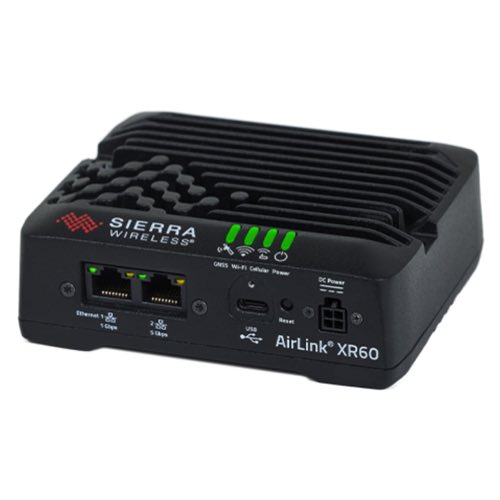XR60 Routers

Semtech XR60 routers, part of the renowned AirLink series from Sierra Wireless, are engineered to provide robust connectivity with an emphasis on versatility and durability in mission-critical applications. Built for high-performance across diverse operational settings, the XR60 delivers consistent 4G LTE connectivity and is well-suited for environments that demand secure and reliable communication.
What makes the XR60 notable is its adaptable and rugged design, crafted to withstand harsh industrial environments while maintaining seamless network performance. The XR60’s enhanced connectivity capabilities make it ideal for applications in field services, public safety, and industrial automation, where reliability and data integrity are paramount. With advanced security features and flexible mounting options, the XR60 offers dependable connectivity for mobile and fixed applications, ensuring uninterrupted communication and data transfer.
More Information about Semtech XR80 Routers
The XR60’s flexibility extends to its integration and configuration options, allowing users to optimize their network setup to meet specific application needs. Designed to be forward-compatible, the XR60 offers a seamless migration path for evolving network demands, providing a solid foundation for scaling connectivity needs in increasingly data-intensive environments.
Basics of Switches, Routers & Hubs
Ethernet hubs, switches and routers connect computers to networks, devices and other computers.
Ethernet hubs are the least intelligent of the three devices. They simply take any message that is received and transmits it to every other device connected to that hub. For example, if CPU 1 on a network wants to send a message to CPU 5, it will send that message through the hub.The hub will then take that message and send it out to every connected device on that hub regardless of the intended target. When CPU 5 receives that message and wants to respond, it will send its response through the hub which sends it to every connected device. Ethernet hubs do not manage any data that is sent and tend to bog down networks. They also do not offer much security for the network. For these reasons, Ethernet hubs are are being replaced with network switches.
Switches transmit data from one device to another on the same network. Unlike a hub, switches use a switch table to learn where data came from and where to send it. Switch tables store Mac addresses and device ports. By storing this data, a switch can operate more efficiently than a hub, greatly reducing the traffic within the network.
Routers transfer data between devices while learning the location of those devices within the network. They are also a junction between two or more networks. An example of this would be a home router where the home network is connected to the Internet. Another example would be when the router connects two or more networks with different business functions. In addition to connecting two or more networks, a router offers important security features that help protect the network.

